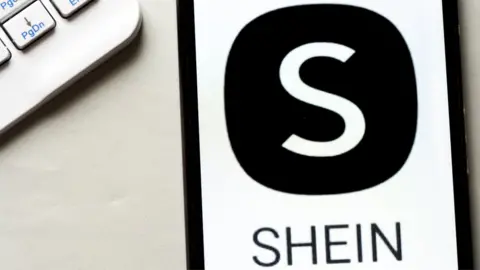Shein apologises for selling Muslim prayer mats as 'Greek carpets'
 Getty Images
Getty ImagesOnline clothing shop Shein has apologised for selling Muslim prayer mats on its site.
The mats sold were labelled as "frilled Greek carpets" and had pictures of the Kabaa on them.
The Kabaa is a building in the centre of Mecca, considered the most sacred place by Muslims around the world.
Shein was also accused of cultural appropriation for using white models to sell sleepwear that imitated cultural clothing.
The retailer has now apologised via a statement to its more than 11m Instagram followers, and removed the items from its site.
Allow X content?

"As a global brand, we vow to do a much better job in educating ourselves on different cultures, religions and traditions to ensure our diverse community is respected and honoured," it said.
"We offer our sincerest apology to all whom we have hurt and offended and hope we can earn your forgiveness."
Reviews on the products showed that customers were using the mats for purposes other than prayer - one review showed a buyer using the mat for their pet cat.
Allow Instagram content?

This isn't the first time something like this has happened - cultural appropriation in fashion has been a prevalent conversation in recent years.
Last year, PrettyLittleThing was criticised for designing an "oriental" collection based around a traditional Chinese dress.
And in 2018, H&M apologised after an advertising campaign showed a black child wearing a hoodie that said "coolest monkey in the jungle".
High fashion brands like Gucci, Dolce & Gabbana and Commes Des Garçons have also had to apologise - but Financial Times fashion editor Lauren Indvik told Radio 1 Newsbeat earlier this year that the industry has "woken up" to the issue of diversity in fashion.
"There's been a real effort at being educated and appointing diversity councils.
"I think there's now a focus on recruiting for diversity that probably wasn't there three or four years ago."


